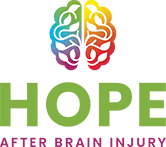As he stood tall behind the glass partition, he quickly glanced at her health chart; a sudden huff of frustration and a winced expression appeared across his face. She was halfway through a tilt table test for syncope symptoms when her doctor said, “I see you’ve been diagnosed with PTSD‘, he scoffed. He forcefully closed her chart, tossing it aside as if to send a clear message of dismissal. She could sense that her appointment for the tilt table test now had no value or contribution towards ailments associated with her undiagnosed traumatic brain injury. In advocacy for herself, she said, ” Yes, but that is not why I am here. I had a head injury in a car wreck, and I have multiple symptoms which I have never experienced in my life.” The patient’s neurologist had understandably referred her to a specialist on suspicion of syncope after hearing her extensive list of post-concussion symptoms and evaluating three inconsistent electroencephalograms (EEG).
Traumatic brain injuries commonly coincide with an umbrella diagnosis of post-concussion syndrome. PTSD, neuroendocrine dysfunction, vagus nerve damage, underlying vision injuries, and sensory integration problems are among a few other co-existing conditions, all sharing similar symptoms. Post-traumatic stress disorder affects millions of people worldwide and is associated with various types of injury and trauma. A false diagnosis of PTSD can occur when brain injury-related conditions point to the perfect storm, an extensive range of autonomic nervous system effects from a TBI.

Imagine sorting through a complicated electrical system filled with malfunctioning wires generating sparks, shortages, small fires, and blocked pathways. Even the best electrician may feel overwhelmed in their quest to restore the system. They must first recognize the importance of informing the customer (patient) that it will take multiple visits and referrals to advanced specialists to understand (diagnose) the problem’s root cause before rebuilding the entire system. Unfortunately, there are no shortcuts. The electrical system will not recover if we dump water on the fires or tape the damaged wires.
BRAIN INJURY SELF ADVOCACY
Sadly, recognizing the difference between actual PTSD and the complexity of multiple traumatic brain injury health conditions still lacks in much of our healthcare system. Mental health stigma surrounding PTSD can cloud even the best medical professionals’ pathway. Categorizing, judging, or misdiagnosing a patient with mild to moderate brain injury leaves them feeling unheard, disregarded, and dismissed.
Every year countless TBI patients worldwide can face difficulties in finding the proper help after their injury. Patients venturing through large portions of an uninformed healthcare system are at risk for worsened stress, and escalating health troubles. Delays in diagnosis and effective treatment plans can hinder their opportunity for a successful long-term recovery.
Despite many medical advancements for traumatic brain injuries, recovery possibilities are still by way of patient self-education, advocacy, and reaching out to forward-thinking physicians who are paving the way towards understanding the whole-body effect after a traumatic brain injury.

Leave A Comment
You must be logged in to post a comment.